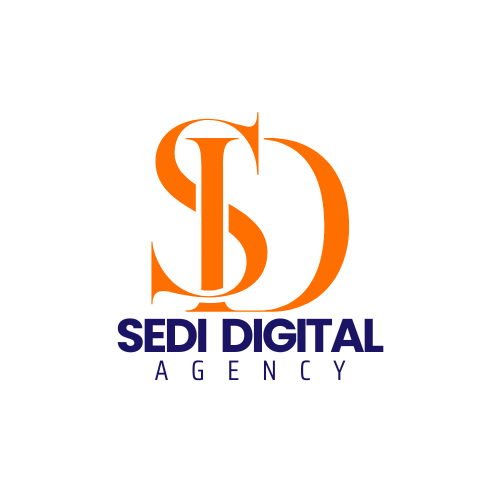As the digital landscape continues to evolve rapidly, businesses increasingly rely on digital marketing agencies to strengthen their online presence, attract targeted customers, and drive sales growth. These agencies play a crucial role in navigating the complex digital world, using a variety of strategies and tools to help brands stand out in competitive markets. But what exactly does a digital marketing agency do? How do they customize their services to meet unique business needs, and what solutions do they offer to fuel real growth?
In this blog, we’ll explore how a digital marketing agency operates behind the scenes, break down the core services they provide from SEO and content creation to web design and social media management and highlight how they deliver measurable, data-driven results that help businesses succeed in today’s competitive online environment.
Understanding a Digital Marketing Agency
A digital marketing agency is a specialized company focused on promoting brands, products, or services using various online channels. They leverage a strategic mix of digital tools and techniques such as SEO, social media marketing, paid advertising, email marketing, and content creation to help businesses effectively connect with and engage their target audiences. Their expertise ensures campaigns are tailored to maximize reach, engagement, and conversions.
Core Functions of a Digital Marketing Agency:
- Strategy Development – Crafting customized, data-driven marketing plans aligned with your business objectives.
- Campaign Execution – Managing and running targeted ads, social media initiatives, SEO efforts, and other digital campaigns.
- Performance Tracking – Continuously measuring ROI and analyzing data to optimize campaigns for better results.
- Client Collaboration – Working closely with clients to ensure marketing activities support overall business goals and growth.
Key Services Offered by Digital Marketing Agencies
A. Search Engine Optimization (SEO)
SEO is essential for increasing a business’s visibility on search engines like Google, helping attract organic, high-quality traffic. Agencies optimize various elements including:
- On-page SEO: Enhancing website content, incorporating relevant keywords, and optimizing meta tags to improve relevance and rankings.
- Off-page SEO: Building authority through quality backlinks, guest posting, and influencer collaborations to boost site credibility.
- Technical SEO: Ensuring website health by improving site speed, mobile-friendliness, proper indexing, and fixing crawl errors to enhance user experience and search engine accessibility.
B. Pay-Per-Click (PPC) Advertising
PPC campaigns deliver immediate traffic by placing targeted ads across platforms. Agencies specialize in:
- Google Ads: Managing search and display network ads that target specific keywords and demographics for maximum ROI.
- Social Media Ads: Creating and running tailored ads on platforms like Facebook, Instagram, and LinkedIn to reach niche audiences effectively.
- Retargeting Campaigns: Re-engaging visitors who didn’t convert initially by showing them customized ads to bring them back and increase conversions.
C. Social Media Marketing (SMM)
Maintaining and growing a brand’s presence across social channels is vital for engagement and customer loyalty. Agencies handle:
- Facebook & Instagram: Developing campaigns focused on audience engagement, brand awareness, and lead generation.
- LinkedIn: Targeting B2B audiences with professional content, networking, and lead nurturing strategies.
- TikTok & Pinterest: Leveraging visual and viral content formats to capture attention and foster community growth.
D. Content Marketing
Content marketing is about creating valuable, relevant material to attract and retain customers while supporting SEO goals. Services include:
- Blogs & Articles: Writing SEO-driven content that educates and informs target audiences, improving organic search rankings.
- Videos & Infographics: Producing engaging visual content to tell your brand’s story and simplify complex information.
- Email Marketing: Crafting drip campaigns, newsletters, and personalized emails that nurture leads and encourage repeat business.
E. Reputation Management
Online reputation is critical in building trust and customer loyalty. Agencies provide:
- Review Management: Monitoring and responding to reviews on platforms like Google My Business and Yelp to maintain a positive brand image.
- Crisis PR: Strategically handling negative feedback or public relations issues to protect and restore brand reputation.
F. Web Design & Development
A well-designed website is the foundation of all digital marketing efforts. Agencies offer:
- Responsive Website Design: Building mobile-friendly, user-centric websites that perform seamlessly across all devices.
- Landing Page Optimization: Designing and testing pages specifically to increase visitor conversions and reduce bounce rates.
- E-commerce Solutions: Developing online stores using platforms like Shopify and WooCommerce to provide smooth shopping experiences and maximize sales.
How a Digital Marketing Agency Works: Step-by-Step
Step 1: Client Onboarding & Goal Setting
The process begins with getting to know the client’s business inside and out. The agency learns about the client’s products or services, target audience, market positioning, and overall objectives. Together, they establish clear, measurable goals such as increasing website traffic by 30% within six months or boosting online sales ensuring everyone is aligned on expected outcomes.
Step 2: Research & Strategy Development
Next, the agency conducts thorough research to inform the strategy. This includes competitor analysis to understand market positioning, keyword research to target the right search terms, and audience insights to tailor messaging effectively. Based on these findings, a customized marketing plan is developed, combining the right mix of SEO, PPC, content marketing, social media, and other digital tactics to meet the client’s specific needs.
Step 3: Campaign Execution
With the strategy in place, the agency launches the campaigns. This involves running targeted ads, publishing optimized content, and implementing SEO improvements across the client’s digital assets. Social media management also plays a key role, including scheduling posts, engaging with followers, and fostering community interaction to build brand loyalty and awareness.
Step 4: Performance Monitoring & Optimization
Digital marketing is an ongoing process. The agency continuously tracks important metrics like click-through rates (CTR), conversions, and overall return on investment (ROI). By analyzing this data, they identify what’s working and what’s not, making timely adjustments to improve campaign effectiveness and maximize results.
Step 5: Reporting & Client Communication
Transparency and collaboration are critical. The agency provides regular reports typically monthly or quarterly that detail campaign performance, insights, and progress towards goals. They also recommend optimizations and new opportunities for scaling efforts, ensuring the client is fully informed and confident in the partnership.
Why Businesses Hire Digital Marketing Agencies
✅ Cost-Effective
Hiring a digital marketing agency is often more affordable than building and maintaining an in-house marketing team. Agencies provide access to a full range of specialized skills without the overhead costs of salaries, benefits, and training.
✅ Expertise & Experience
Agencies bring together experts who specialize in different areas such as SEO, paid advertising, content creation, and social media management. Their combined experience ensures strategies are effective, up-to-date, and tailored to industry best practices.
✅ Time-Saving
Outsourcing marketing efforts allows business owners and internal teams to focus on core operations and growth activities. The agency handles all aspects of marketing, from planning to execution, saving valuable time and resources.
✅ Scalability
As businesses grow or market conditions change, agencies can quickly adapt strategies and scale campaigns to meet new goals. This flexibility ensures marketing efforts remain aligned with business objectives without the need for constant internal restructuring.
Choosing the Right Digital Marketing Agency
When selecting a digital marketing agency, it’s important to evaluate several key factors to ensure a successful partnership:
🔹 Portfolio & Case Studies
Review the agency’s past work and success stories. Proven results and client testimonials demonstrate their ability to deliver measurable outcomes and handle projects similar to your needs.
🔹 Transparent Pricing
Look for clear and upfront pricing with no hidden fees. Understanding the cost structure helps avoid surprises and ensures the services align with your budget.
🔹 Communication Style
Effective communication is vital. Choose an agency that provides regular updates, is responsive to your questions, and values collaboration throughout the campaign process.
🔹 Industry Experience
An agency familiar with your industry or niche will better understand your target audience and competitive landscape, allowing for more tailored and effective marketing strategies.
Final Thoughts
A digital marketing agency acts as an extension of your business, helping you increase visibility, generate leads, and boost sales through strategic online campaigns. Whether you’re a small business owner or a marketing generalist, partnering with the right agency can save time, reduce costs, and drive growth.

